This is a self-evaluation and exercise guide for each unit. It will provide some startup questions, supplementary theoretical texts that will help you navigate the theoretical aspects of the course and that are covered by prior courses in the Faculty of English Language and Literature. To facilitate reading, all selections have been made from The Norton Anthology of Theory and Criticism, 2nd edition. It will also provide some multiple-choice exercises that will help you gauge your understanding of the unit’s material.
Why is the body important? Why is it interesting to talk about?
How many different meanings has the word “body” have? How many different bodies could you recall if you think about it for 5 minutes? What makes them memorable?
Think of bodies in art. What different ways can you recall of portraying the body, and why do they differ so?
Supplementary readings:
Ferdinand de Saussure, “From Course in General Linguistics, Part One, Chapter I”
